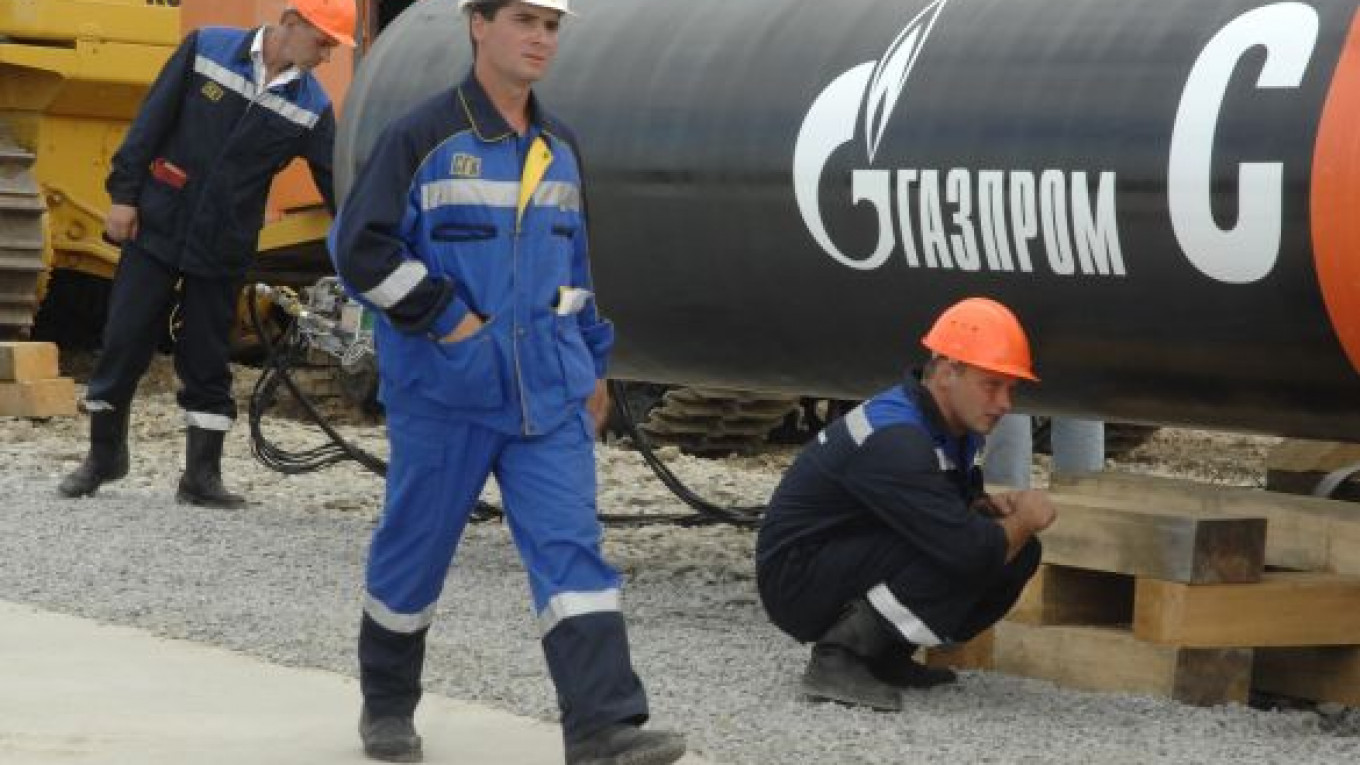Gazprom could have to put on ice its plans to develop more Arctic fields in light of a proposal that the Cabinet backed earlier this week to raise taxes on the industry.
The higher gas production tax will reduce Gazprom's profits, even given its monopoly on the lucrative export sales, USB said in a note to investors Friday.
"We estimate that it will make the company's Yamal megaproject completely unprofitable," the note said.
A Gazprom spokesman said he couldn't comment immediately when asked whether the company intended to review its field development plans to adapt to the higher tax.
Gazprom scheduled the launch of its first — and largest — Yamal field, called Bovanenkovskoye, at the end of June.
The gas giant's chief for production, Vsevolod Cherepanov, said in March that the next field to come online would be Kharasaveiskoye, in 2018.
Further, the company plans to launch the Kruzenshternskoye field in 2025, he said in an interview with the in-house magazine.
Elsewhere in Russia, Gazprom is planning to start production at the northern Chayandinskoye field in Yakutia to feed its potential exports to Asia. The company has been asking for tax breaks to make the project viable.
Tapping new fields ensures that Gazprom has a sufficient supply of gas to deliver to its customers, even as current fields deplete and demand is projected to rise.
The higher tax will not directly affect the Yamal project by Novatek and its foreign partner, France's Total. They plan to extract gas from a field there to supply it by tanker in a supercooled form called liquefied natural gas, or LNG.
The government approved a holiday for the gas production tax for Yamal projects that produce exclusively LNG, designed specifically for the Novatek-led effort. The law that grants that tax holiday went into force in January.
The heavier fiscal burden on the overall industry will, however, likely reduce the company's ability to finance its share of the hugely expensive project, said Konstantin Cherepanov, a gas analyst at UBS. Total also owns a minority stake in Novatek.
Gennady Sukhanov, an analyst with the TKB-BNP Paribas Investment Partners brokerage, played down the effect of the higher tax on new production. The reason: Along with the tax, regulated gas prices will also grow.
"The companies will make more despite the tax growth," he said.
Vladimir Putin backed the tax increase after he promised a further upturn in social spending during his presidential campaign.
The tax for Gazprom will go up twice a year, starting next year, eventually doubling in 2015. The rate will reach 1,062 rubles ($36) per 1,000 cubic meters on July 1 that year.
The tax for the other gas producers will quadruple to 1,049 rubles per 1,000 cubic meters.
A Message from The Moscow Times:
Dear readers,
We are facing unprecedented challenges. Russia's Prosecutor General's Office has designated The Moscow Times as an "undesirable" organization, criminalizing our work and putting our staff at risk of prosecution. This follows our earlier unjust labeling as a "foreign agent."
These actions are direct attempts to silence independent journalism in Russia. The authorities claim our work "discredits the decisions of the Russian leadership." We see things differently: we strive to provide accurate, unbiased reporting on Russia.
We, the journalists of The Moscow Times, refuse to be silenced. But to continue our work, we need your help.
Your support, no matter how small, makes a world of difference. If you can, please support us monthly starting from just $2. It's quick to set up, and every contribution makes a significant impact.
By supporting The Moscow Times, you're defending open, independent journalism in the face of repression. Thank you for standing with us.
Remind me later.






